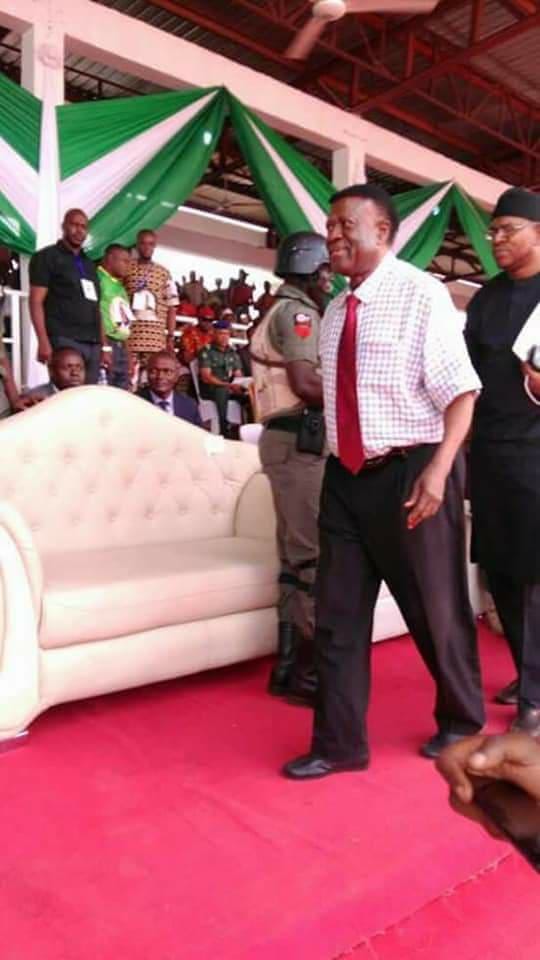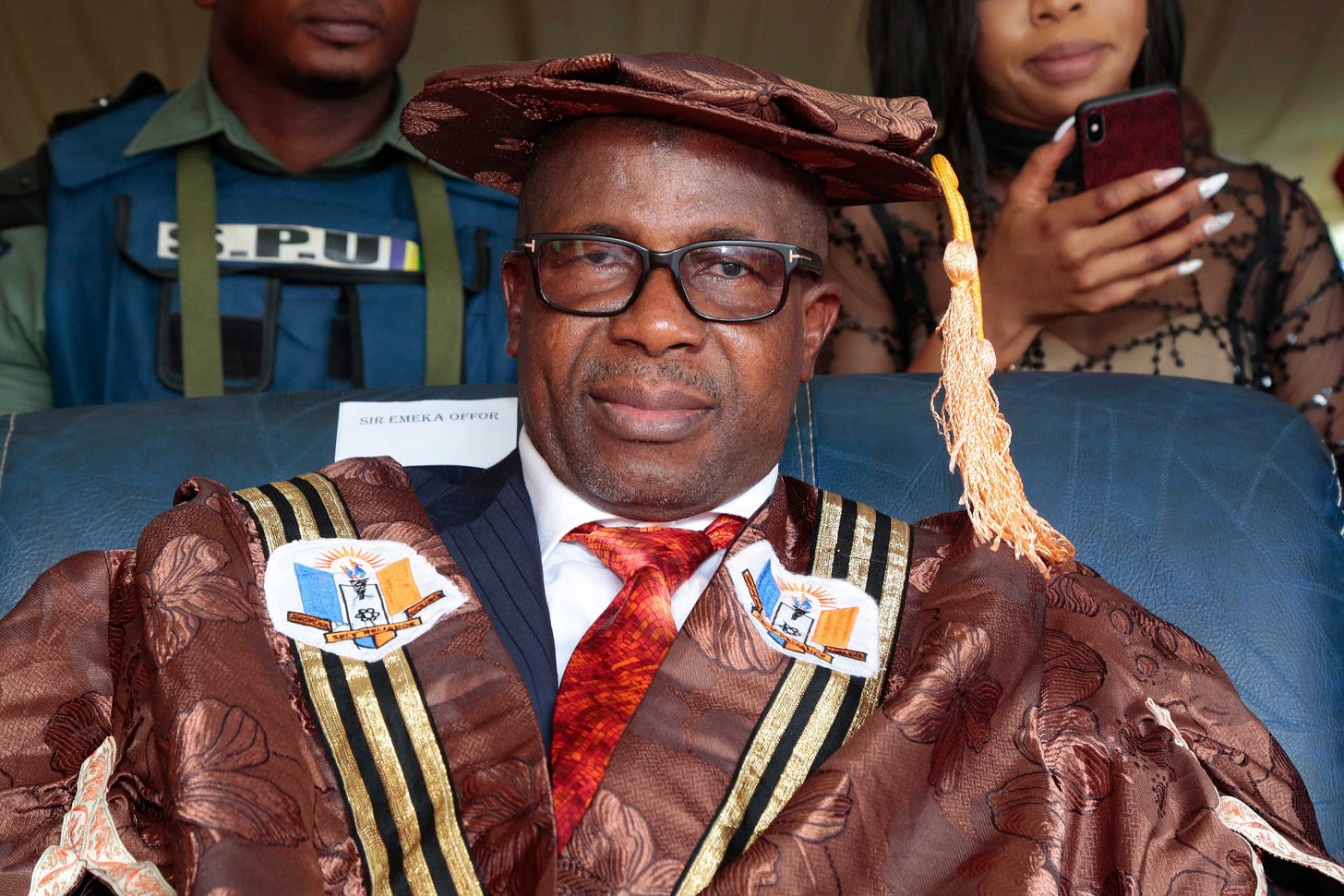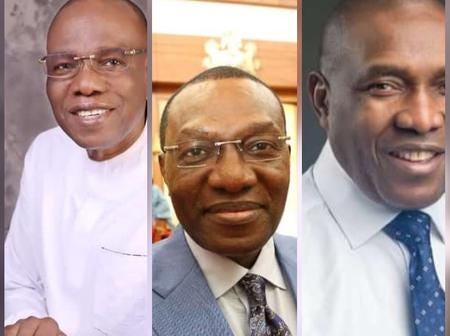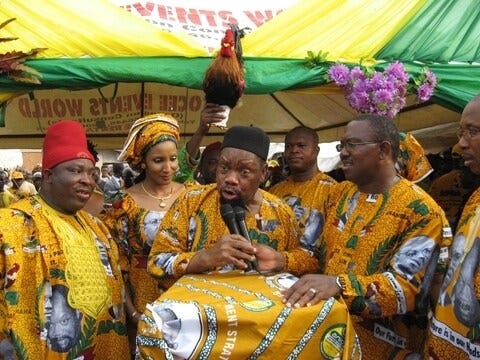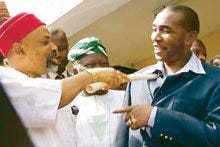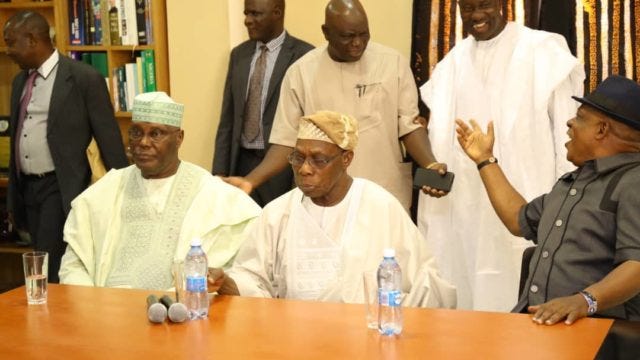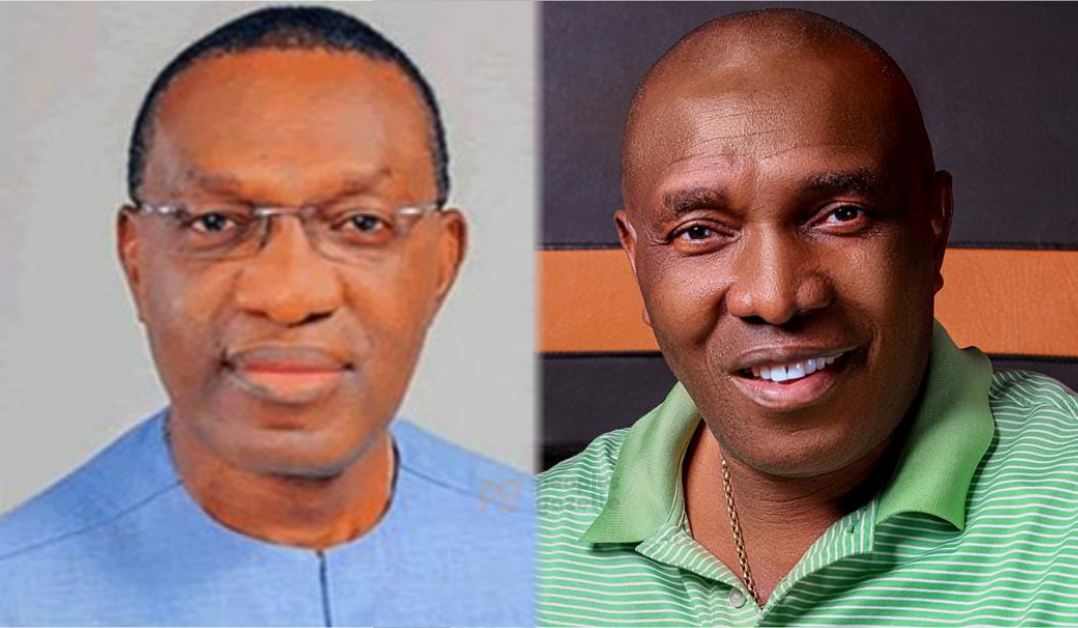Former Governor Chinwoke Mbadinuju
Since 1999, the birthdate of what used to be styled Nigeria’s “nascent democracy,” Anambra State has served as the country’s most illumining political lab. On the one hand, the state has witnessed some of the severest crises of Nigeria’s deformed democracy. On the other hand, it has withstood those myriad tests, demonstrated impressive resiliency, and illustrated what’s possible when a few good people – or lots of them – resist impunity.
It was in Anambra that the grotesque phenomenon of godfather politics first played out. The morbid symptom made its stunning manifestation in 1999, even before Clement Chinwoke Mbadinuju took the oath of office as governor. It was common knowledge that the Cornell-educated Mbadinuju, a journalist and lawyer, was a mere puppet in the hands of a brash businessman, Emeka Offor. Mr. Offor gloated about “sponsoring” – and therefore owning – the governor. Despite being intellectually deficient – possessing no more than a secondary school education – the businessman felt it was his right to call the critical shots. He assumed the prerogative of handpicking key appointees, including members of Mr. Mbadinuju’s cabinet. On the rare occasion when Mbadinuju grumbled, the godfather threatened to order members of the state legislature – most of them fiercely loyal to him – to impeach the governor.
Emeka Offor
As the governor operated under the tight reins of a crude political godfather, it surprised nobody that Mr. Mbadinuju became a disaster. For more than a year, his wretched administration paid neither salaries nor pensions. Schools were shuttered as unpaid teachers went on a yearlong strike. Violence spiked, culminating in the unsolved gruesome murder of Barnabas Igwe, a prominent lawyer and critic of the governor, along with his pregnant wife. Mbadinuju became so thoroughly inept that his political party, the Peoples Democratic Party – despite its wizardry in stealing elections – decided they could not present him for a second term.
The Uba brother’s
In place of Offor, the PDP debuted Chris Uba as their fresh-minted godfather. The new kid on the political block proved even more rustic and unlettered than the man he replaced. He openly bragged that he and he alone, not the electorate, enthroned Chris Ngige, a medical doctor, as the state’s governor, in addition to the entire slate of state lawmakers. It was no idle fancy.
Every honest person knew that Peter Obi, the candidate of the All Progressives Grand Alliance (APGA), had won the election.
Emeka Ojukwu (center); Peter Obi (right)
Mr. Uba exhibited some of the virulent traits of Nigeria’s diseased politics. His immediate older brother, Nnamdi (Andy) Uba, was a senior domestic aide to then President Olusegun Obasanjo. The would-be godfather capitalized on the family connections to cozy up to Mr. Obasanjo. Theirs was an odd, but hardly surprising, amity. After all, the ex-president is notorious for his contradictions. Though given to virtuous rhetoric on political matters, his deeds are often abominable.
Buoyed by his access to a certifiably mischievous president, Mr. Uba figured he could get away with anything. He served notice that he considered Anambra his fief. And that he would brook no disloyalty from any of his political wards.
When the man he had installed as governor would not let him use the state’s treasury as his plaything, the incensed godfather decided to make a ruthless example of his impudent minion. He mobilized a couple of hundred police officers, including a venal assistant inspector general of police, and stormed the governor’s office. While the armed police held Mr. Ngige hostage, the enraged godfather’s factotums transmitted the governor’s purported letter of resignation to the state assembly. The suborned legislature quickly approved the swearing in of the deputy governor, a man named Okey Udeh, as the new governor. Unlike the obstinate governor, Mr. Udeh was apparently not averse to obeying the godfather’s every command.
Chris Ngige (left) with Chris Uba
Thanks to a fortuitous series of events, the treasonous plot collapsed. A key reason was that Mr. Obasanjo, a sly co-orchestrator, happened to be outside of the country. Once apprised of the police-aided abduction, then Vice President Atiku Abubakar ordered the reversal of every illicit move, and the governor’s re-installation.
Former President Obasanjo (center) with former VP Atiku Abubakar
Though thwarted, the irate godfather had other nefarious options. Months later, hired bandits swept through the state in dozens of vehicles. The thugs torched numerous government establishments, including the state assembly. You’d like to know that the police were right on hand, gleefully escorting and protecting the wreckers and arsonists! The slash-and-burn spree had a basic – and base – purpose. Its instigators were desperate to create a pretext to enable President Obasanjo to declare a state of emergency in Anambra, to remove the stubborn governor, and to plant a pliable sole administrator who understood that a godfather’s desires must trump the public interest.
The dramatis personae in the whole absurd theater – the then president, a hubristic godfather, and rogue police officers – underscored an important point: that the Nigerian state was, at core, a thoroughgoing criminal enterprise.
Meanwhile, thanks to Peter Obi’s relentlessness, the courts finally upheld his gubernatorial mandate. His victory opened a laudable chapter in Nigeria’s political history. It emboldened other disinherited candidates to seek justice in the courts, even if – in a landscape marked by judicial cowardice and corruption – similar triumphs are quite rare.
In 2007, Mr. Obi scored yet another crucial judicial precedent. The country’s Supreme Court ruled that his four-year term must be counted, not on the day he won the election, but on the date of his ultimate inauguration. With that verdict, the court sacked Andy Uba, the erstwhile godfather’s brother, who had been declared governor after a joke of an election.
The Uba duo – Chris and Andy – have plagued Anambra politics for two decades. While Mr. Obasanjo ran Nigeria, the Uba brothers could count on presidential cover for their political excesses, including orchestration of electoral fraud. With the former president out of reckoning, consigned to well-earned infamy, the once haughty brothers have lost their mojo.





